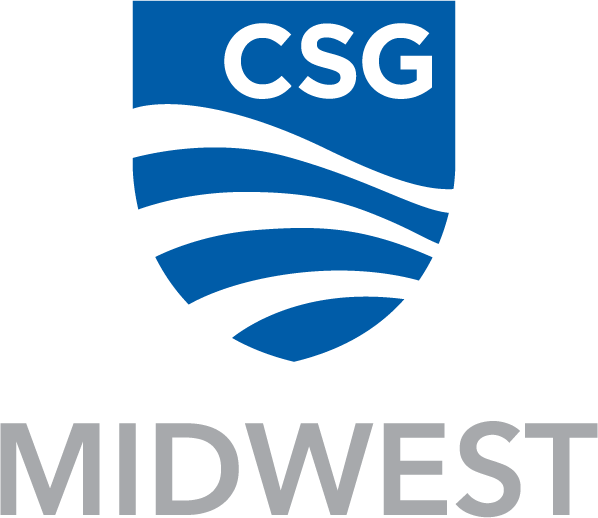GLLC Web Meeting Recap: Binational Oil Spill Response on the Great Lakes
On January 19, the Great Lakes-St. Lawrence Legislative Caucus (GLLC) had a discussion with the United States Coast Guard and Canadian Coast Guard about binational emergency response on the Great Lakes. Jerome Popiel, Incident Management and Preparedness Advisor with the U.S. Coast Guard Ninth District and Amanda Greer, Deputy Superintendent of Environmental Response with the Canadian Coast Guard Central Region gave an overview of coordinated response in the case of oil spills and environmental hazards.
In the Great Lakes-St. Lawrence region, action is coordinated through the Canada – U.S. Joint Marine Contingency Plan Great Lakes Annex. This annex, known as CANUSLAK, was first included in the Great Lakes Water Quality Agreement (GLWQA) in 1972. The current governing version was signed and affirmed in 2022. In practice, CANUSLAK allows both sides of the border to work together in the case of a pollution incident. While many layers of federal, state/provincial, and local responses are involved, the U.S. Coast Guard and Canadian Coast Guard are the main coordinating bodies in the event of a spill in the waters of the Great Lakes-St. Lawrence River.
When an incident occurs, an International Coordinating Officer (ICO) joins the response team to coordinate between countries and across various agencies. The leadership of the ICO allows a joint response to occur without being split by the international border. To illustrate this seamless response, Popiel and Greer shared examples binational incident response, including a benzol release from a sunken barge in Lake Erie in 2015, a grounded cargo ship in the St. Lawrence River in 2019, a fire response on a burning ship on the Detroit River in 2019, as well as another vessel fire on the St. Clair River in 2023. For legislators, when an incident occurs, they should look to the U.S. Coast Guard and Canadian Coast Guard for coordinated messaging. In past incidents, federal and state/provincial legislators have been involved in notifications and public announcements.
Attendees asked about response in the case of an Enbridge Line 5 pipeline spill in the Great Lakes and how climate change is impacting the plans and exercises that CANUSLAK undertakes. In reference to Enbridge Line 5, Popiel said that so far, there have not been any releases of materials along the coastal zone of the Great Lakes. If there were to be a Line 5 spill in the Great Lakes, the U.S. Coast Guard would respond based on practiced and in-place coordinated response plans. As the operator, Enbridge would be responsible for handling shutoff and initial response procedures, while the U.S. Coast Guard and the corresponding Canadian agency would be responsible for making sure that response plan was followed and dealt with appropriately.
In relation to climate change, the most recent iteration of CANUSLAK in 2022 contains the first mention of climate change impacts. At this point, CANUSLAK is watching and collecting information on climate change and there have not been significant changes to incidents and response. However, there has been an observed increase in incidents on the Great Lakes. This is attributed to an increase in recreational vessels and public outreach campaigns.
After the presentation, the GLLC provided updates on the Executive Committee’s work, the Task Force on Climate Resiliency, and the upcoming GLLC 2024 Annual Meeting in Duluth, MN on September 9-10. During the legislative roundtable, Minnesota Senator Ann Rest raised Minnesota DNR’s successful program to remove invasive carp, with recent funding appropriated to expand and further prevent introduction of invasive carp into Minnesota’s waters and the Great Lakes basin.

